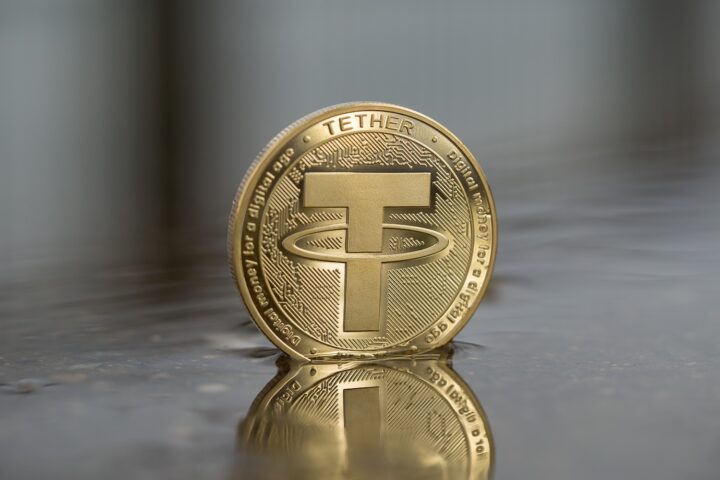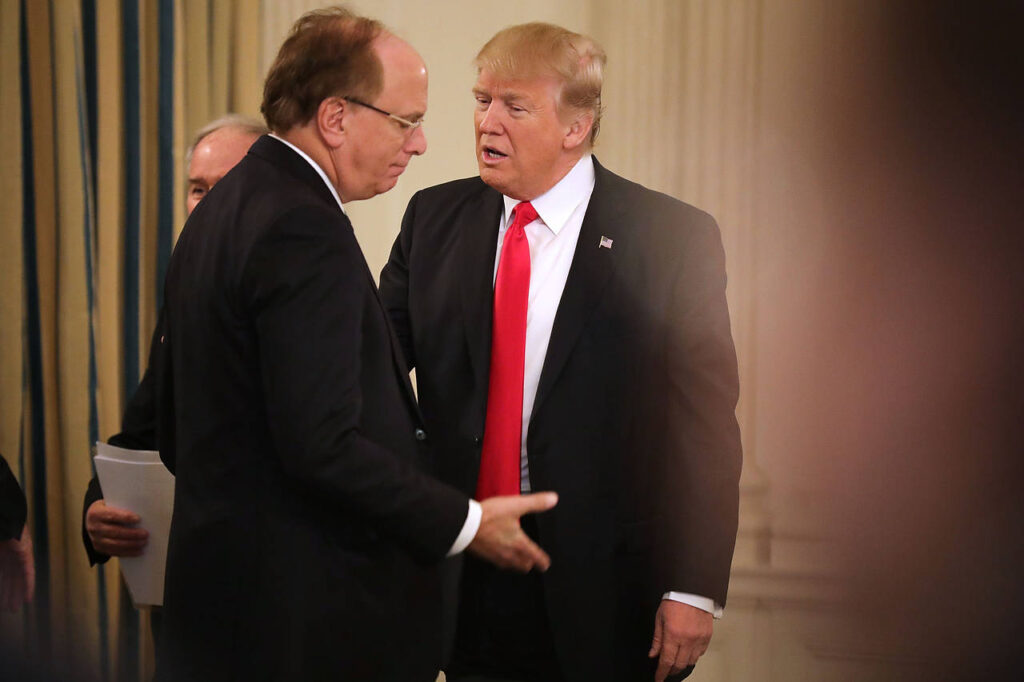According to a report from The New York Times on July 6, the Federal Bureau of Investigation (FBI) conducted a search of Kraken co-founder Jesse Powell’s home in March as part of an investigation into allegations of hacking and cyber-stalking against a nonprofit arts group.
The Verge Center for the Arts, which Powell founded, claimed that he had interfered with computer accounts by blocking access to emails and other messages from contributors.
Three individuals with knowledge of the matter informed The NYT that the FBI, along with the U.S. Attorney’s Office for the Northern District of California, had been investigating Powell since at least September 2022.
READ MORE: Larry Fink Advocates for Crypto, Fuels Hopes for Bitcoin ETF Amid Regulatory Uncertainty
During the search, electronic devices were seized from Powell’s home in Brentwood, Los Angeles.
However, it is important to note that prosecutors have not formally charged Powell with any crimes.
Powell’s lawyer, Brandon Fox, stated that the investigation primarily focused on the allegations made by the nonprofit and was unrelated to Powell’s involvement in the cryptocurrency arena.
This statement was reportedly supported by a spokesperson from Kraken.
When approached for comment, Jesse Powell did not immediately respond to Cointelegraph’s request.
Powell founded the Sacramento-based arts group in 2007, although his LinkedIn profile indicates that he has been working as a founder and board member since April 2010.
Kraken, the cryptocurrency exchange co-founded by Powell, currently holds the position of the second largest U.S.-based exchange, trailing behind Coinbase according to CoinMarketCap.
However, in February, Kraken faced enforcement action from the U.S. Securities Exchange Commission (SEC) for its failure to register the offer and sale of their staking service program.
As a result, Kraken reached a settlement with the SEC, agreeing to pay a substantial $30 million fine.
The investigation into Jesse Powell’s alleged activities involving the Verge Center for the Arts is ongoing, and it remains to be seen whether any charges will be brought against him in relation to these accusations.
Binance’s chief strategy officer, Patrick Hillmann, has confirmed his departure from the cryptocurrency exchange amidst reports of other top compliance executives resigning in the United States.
In a tweet on July 6, Hillmann stated that he is leaving Binance on good terms after two years with the company.
He mentioned that it is time for him to move on to the next challenge, especially as he is expecting his second child.
Fortune had previously reported that several Binance executives, including Hillmann, left the exchange due to CEO Changpeng “CZ” Zhao’s response to the U.S. Justice Department’s investigation, citing an internal source.
READ MORE: Coinbase, Binance and Gemini have least happy employees
It was further revealed that the general counsel, Han Ng, and the senior vice president for compliance, Steven Christie, have also departed from the exchange.
In response to these reports, Zhao dismissed them as “FUD” (fear, uncertainty, and doubt) in a tweet, claiming that the reasons for the executive departures were fabricated and completely false.
According to another report from Bloomberg, Binance’s head of legal for APAC and MENA, Eleanor Hughes, will assume the role of the new general counsel, replacing Ng.
Meanwhile, Noah Perlamn, who joined as the chief compliance officer in February, will continue to work at the company. When asked for comment on the matter, Binance referred to Zhao’s tweet.
The U.S. Justice Department is reportedly investigating Binance for allegedly permitting Russians to use the exchange in violation of U.S. sanctions.
Additionally, in June, the Securities and Exchange Commission filed a lawsuit against Binance, accusing them of offering unregistered securities and misusing customer funds.
Earlier in March, the Commodities Futures Trading Commission also sued Binance, alleging that the exchange failed to properly register with the regulator.
As Binance faces these legal challenges and the departure of key compliance executives, the cryptocurrency exchange will need to navigate through these obstacles and maintain transparency to regain trust within the industry and with regulatory authorities.
Concerns are rising as abnormally large outflows from the Multichain MPC bridge platform have sparked fears of a potential multimillion-dollar exploit.
On July 6, significant amounts of cryptocurrency were withdrawn from Multichain’s bridges on different chains, leading to suspicions of unauthorized activities.
The withdrawals from Multichain’s Fantom bridge on the Ethereum side amounted to approximately $102 million worth of crypto. In addition, $666,000 was withdrawn from Dogechain, and $5 million was taken from Moonriver.
Specifically, the Fantom bridge’s Ethereum smart contract witnessed the withdrawal of 7,214 Wrapped Ether (WETH) tokens valued at $13.6 million, 1,024 Wrapped Bitcoin (WBTC) worth $31 million, and $58 million worth of USD Coin (USDC).
The Ethereum contract of the Dogechain bridge saw a withdrawal of $666,000, which accounted for over 86% of its total deposits, leaving only around $100,000 remaining.
READ MORE: Larry Fink Advocates for Crypto, Fuels Hopes for Bitcoin ETF Amid Regulatory Uncertainty
Similarly, the Multichain Moonriver bridge contracts experienced the withdrawal of $5,872,661 worth of USDC and Tether (USDT), leaving approximately $700,000 in assets behind.
The event triggered suspicions of an exploit, with blockchain security firm PeckShield alerting the Multichain team through a tweet highlighting the transactions.
Other on-chain investigators shared similar concerns, referring to the incident as a possible hack.
At the time of publication, it was not confirmed whether the contracts were fully drained or if users had simply withdrawn significant amounts of funds.
Cointelegraph reached out to the Multichain team but did not receive a response by the time the article was published.
Multichain later acknowledged the abnormality of the movements on Twitter and stated that the team was currently investigating the situation.
Multichain operates as a multi-party computation (MPC) bridging network, facilitating the transfer of assets between different chains.
The process involves confirming the locking of assets on one chain and minting derivative assets on the target chain.
Withdrawals reverse this process by ensuring the destruction of derivative coins on the second chain and releasing the backing assets on the first chain.
The Multichain team claims that the cryptographic keys controlling these processes are distributed across multiple shards within the network, making unauthorized withdrawals theoretically impossible.
However, the platform has faced technical issues in recent weeks, including the CEO going missing and delayed transactions.
Binance even suspended withdrawals of some Multichain derivative tokens due to the network’s failure to process transactions promptly.
Governments worldwide are facing significant challenges in effectively taxing cryptocurrencies, according to a recent working paper by the International Monetary Fund (IMF).
The paper highlights the complexity arising from crypto’s semi-anonymous nature, its dual role as an investment vehicle and payment method, and its high volatility.
Furthermore, the emergence of blockchain technology and the diverse range of crypto assets it has spawned adds another layer of complexity to tax systems that were designed before this technology existed.
The IMF acknowledges that crypto’s high fees and volatility make it less attractive for tax evasion.
However, it suggests that if governments could harness the potential for crypto tax collection, it could serve as a corrective measure to counter the undesirable macroeconomic impacts of crypto and contribute to environmental goals.
The paper highlights the need for exploring mechanisms such as green taxation but emphasizes that more consideration is required in this area.
Although there is a wealth of data available on cryptocurrency transactions, there is a lack of analytical work and empirical evidence on this subject.
READ MORE: Hong Kong Government Urged To Challenge Tether and USDC
The IMF also notes the challenges faced in emerging economies, where technology for tax collection may be limited.
Even in cases where crypto is seized, such as by the U.S. Federal Bureau of Investigation, the process for doing so remains unclear.
Another factor that complicates taxation is the division between large crypto holders (“whales”) and small holders, which may require distinct approaches.
The paper suggests that proper tax design is crucial and proposes the possibility of imposing a flat-rate tax on anonymous transactions.
The primary challenge lies in the technology itself, as tax authorities struggle to insert themselves into blockchain transactions.
The paper highlights the potential value of distributed ledger technology and smart contracts in facilitating tax administration and ensuring compliance.
Centralized exchanges are seen as more amenable to enforcing tax compliance than decentralized exchanges, although implementing such measures would require significant work.
The IMF argues that Anti-Money Laundering and Know Your Customer measures, while necessary for other purposes, are insufficient for effective tax reporting.
To enhance tax compliance, the IMF suggests imposing greater reporting requirements on crypto miners.
Additionally, it emphasizes the need to address the inconsistencies surrounding sales and value-added taxation in the context of cryptocurrencies.
In conclusion, governments are grappling with the complexities of taxing cryptocurrencies due to their unique characteristics and the technological advancements that underpin them.
Addressing these challenges will require innovative tax design, leveraging distributed ledger technology, and establishing clear reporting requirements.
As the popularity of cryptocurrencies continues to grow, it is crucial for governments to find effective solutions to ensure fair and efficient taxation in this evolving landscape.
Binance.US has experienced a significant decline in market share of over 20% due to an ongoing lawsuit filed by federal financial regulators.
Reuters, citing data from Kaiko, reported on July 5 that Binance.US’ market share plummeted from over 22% in April to approximately 0.9% as of June 26.
The legal action was initiated by the U.S. Securities and Exchange Commission (SEC), which accused Binance.US, along with its parent company Binance and CEO Changpeng “CZ” Zhao, of operating as an unregistered securities exchange.
Prior to this lawsuit, the Commodity Futures Trading Commission had already filed a similar complaint against Binance and CZ in March.
READ MORE: How A Crypto Trader Turned $900 Into $176,000 With Pepe 2.0
In a parallel development, Coinbase, another prominent cryptocurrency exchange facing a lawsuit from the SEC, witnessed an increase in its market share in the U.S. According to Reuters, Coinbase’s market share rose from around 48% to 55% in June.
This surge in market share can be attributed, at least in part, to Coinbase being named as a surveillance partner in several SEC filings submitted by asset managers aiming to launch a spot Bitcoin exchange-traded fund in the United States.
On July 5, Cointelegraph reported that the combined trading volume of spot and derivatives on centralized cryptocurrency exchanges surged to over $2.7 trillion.
This increase in trading activity can be attributed, in part, to growing investor sentiment following BlackRock’s filing for a spot Bitcoin ETF.
However, it is important to note that the SEC has yet to approve any spot cryptocurrency ETFs in the United States, and it has rejected numerous applications from various firms.
Overall, Binance.US has witnessed a significant decline in market share due to the SEC lawsuit, while Coinbase has experienced a boost in its market share amidst its own legal challenges.
The cryptocurrency market as a whole has seen a surge in trading volume, driven in part by investor optimism surrounding the possibility of a spot Bitcoin ETF.
Nevertheless, the SEC’s stringent stance on approving such ETFs has resulted in the rejection of multiple applications from various companies.
Crypto exchange dYdX has achieved a significant milestone with the launch of the public testnet for its latest iteration, version four (v4), as stated in an announcement by the exchange’s development team on July 5.
This advancement brings the exchange one step closer to the eventual launch of the v4 mainnet, which is anticipated to enable full decentralization of the platform.
dYdX operates on the Ethereum and StarkEx networks and is widely recognized as a decentralized exchange (DEX) since it doesn’t hold users’ funds.
READ MORE: Hong Kong Threatening US As It Emerges As Preferred Web3 Destination
However, it does feature a centralized order book and matching engine, allowing market makers to place limit orders.
This sets it apart from automated market maker DEXs like Uniswap, which leverage on-chain pricing algorithms for buyer-seller matching.
The upcoming version four of dYdX aims to eliminate the need for a centralized order book and matching engine, resulting in a fully decentralized exchange that doesn’t rely on an automated market maker.
According to the protocol’s documentation, this will be achieved by deploying parts of the application on a separate dYdX network with its own validators, enabling the order book to be stored on-chain.
The recent announcement also revealed that users can now request testnet funds to explore the app and engage in virtual trades, track profit and loss, and perform other essential exchange functions starting from 5:00 pm UTC on July 5.
Although the ability to test bridging between networks has yet to be implemented, it is expected to be introduced during the public testnet phase.
Upon the completion of the testnet phase, the protocol’s team plans to proceed with the fifth milestone on their roadmap.
This milestone will involve integrating stablecoins into dYdX and incorporating support for Cosmos Inter-Blockchain Communication, granting Cosmos users access to the dYdX app. Following the accomplishment of this final milestone, the release of version four is anticipated.
It is worth noting that dYdX faced regulatory challenges in Canada, which led to the decision to wind down its services in the country, as announced in April.
In September 2022, the exchange faced criticism from privacy advocates after offering a $25 bonus to new users who could prove they were not bots.
However, this promotion was eventually abandoned.
A recent analysis of employee reviews on Glassdoor has revealed that crypto exchanges such as Gemini, Binance, and Coinbase have some of the least happy employees in the industry.
The data, collected by tech recruitment firm TrueUp, compared employee happiness to company growth and placed 27 of the most valuable cryptocurrency firms on a quadrant chart.
According to the chart, Celsius, a defunct crypto lender, along with Gemini and Amber Group, both crypto exchanges, had the least happy employees based on the reviews of 80, 139, and 42 individuals, respectively.
Binance and Coinbase also appeared on the less happy side of the chart, with a total of 1,257 reviews on Glassdoor.
READ MORE: How A Crypto Trader Turned $900 Into $176,000 With Pepe 2.0
Although Glassdoor does not have a specific happiness metric, it assesses whether reviewers would recommend the company to a friend, approve of the CEO they worked under, and have a positive outlook for the company.
Binance, when questioned about the negative reviews, attributed them to the demanding and fast-paced work environment that the company seeks to maintain.
They stated that not all employees are cut out for such an environment and acknowledged the importance of negative feedback in addressing issues and improving the employee experience.
It is worth noting that Glassdoor reviews are user-submitted and subject to a moderation process, which raises concerns about the reliability of the data.
Some recruiters have previously questioned the legitimacy of Glassdoor reviews, suggesting that they can be easily manipulated or falsified.
However, Glassdoor maintains that each review goes through a moderation process before being published on the website.
Neil Dundon, founder of Crypto Recruit, expressed his view that employees involved in building blockchain infrastructure tend to be more satisfied than those working at exchanges.
He suggested that employees in speculative/exchange environments may feel less fulfilled compared to those working on infrastructure projects, as the latter group may have a stronger sense of purpose.
Dundon also noted that the industry-wide layoffs that occurred over the past year likely influenced the job satisfaction levels.
He mentioned that the general insecurity among employees caused by these layoffs makes it difficult for them to feel happy in their roles.
However, he believes that the worst may be behind crypto employees now.
On a positive note, the TrueUp chart indicated that the “happiest” workers in the industry were associated with Ava Labs, Blockchain.com, and Fireblocks. Glassdoor data also revealed that Alex Mashinsky, the founder and former CEO of Celsius, received low approval ratings from past and present employees.
While Brian Armstrong of Coinbase and Changpeng Zhao (CZ) of Binance had lower-than-average approval ratings among technology-based CEOs.
In summary, the analysis of employee reviews on Glassdoor suggests that certain crypto exchanges have less satisfied employees compared to others in the industry.
However, the reliability of the data and the potential impact of recent layoffs should be considered when interpreting the results.
Larry Fink, the CEO of BlackRock, the world’s largest asset management firm, recently vocalized his support for cryptocurrencies during an interview on Fox Business.
This comes as BlackRock applies to list a Bitcoin exchange-traded fund (ETF) in the U.S, a move that could revolutionize finance by providing an accessible investment tool linked directly to Bitcoin.
In the interview, Fink characterized cryptocurrency’s role as essentially “digitizing gold”, implying that it could serve as an alternative investment asset that isn’t tied to any specific currency.
He suggested that Bitcoin could provide investors with a way to protect against inflation and currency devaluation, signaling an international asset appeal.
Fink’s commentary on the crypto landscape has been consistent. He has weighed in on various important occurrences within the sector, such as the FTX downfall in 2022 and the growing intrigue surrounding Bitcoin.
READ MORE: Law Firm Seeks Huge Compensation From Voyager Digital’s Creditors
Given BlackRock’s influence, with over $9 trillion in assets under management as of April, Fink’s pro-crypto statements could trigger substantial impacts both within and outside the cryptocurrency domain.
Crypto enthusiasts online have reacted favorably to Fink’s pro-Bitcoin commentary, with some predicting a potential surge in certain asset prices, referred to as the “Fink Pump”.
At the time of the interview, Bitcoin’s price stood at $30,473, a slight 1% decline from the previous 24 hours.
It’s worth noting that under Fink’s leadership, BlackRock has pursued the launch of a Bitcoin ETF, with crypto giant Coinbase as a surveillance partner.
However, the outcome remains uncertain as the U.S Securities and Exchange Commission has previously rejected all spot Bitcoin ETF applications.
Fink’s positive stance on crypto could potentially tip the scales in favor of such advancements, marking a milestone for cryptocurrency integration into traditional finance.
In a recent social media post on July 4, Dmitry Gusakov, the community staking lead for Lido, accused their competitor, Rocket Pool, of excessive centralization.
Lido and Rocket Pool are both liquid staking protocols that enable users to delegate their cryptocurrency to validators and receive derivative tokens in return.
Gusakov’s post highlighted that the Rocket Pool contracts are under the control of the Rocket Pool team, allowing them to modify any parameters and execute any methods.
READ MORE: US Crypto Hub Still Thriving Despite Regulatory Challenges, Says Blockchain CEO
This means that Rocket Pool developers possess the ability to increase the inflation rate to an arbitrarily high percentage or raise fees up to 100%.
Gusakov emphasized that such vulnerabilities do not exist in Lido’s contracts since these actions are “fully controlled by [decentralized autonomous organization] LidoDAO.”
He claimed that the Rocket Pool contracts, on the other hand, grant significant control to the team.
In response to these allegations, Rocket Pool management committee member Waq acknowledged the existence of the vulnerability and assured that it would be addressed in the future.
Waq accused the Lido team of attempting to take credit for identifying an issue that was already known to Rocket Pool.
According to Gusakov’s post, the RocketStorage contract at Ethereum address 0x1d8f8f00cfa6758d7bE78336684788Fb0ee0Fa46 contains a parameter called “guardian.”
Various functions within the Rocket Pool contracts are labeled as “onlyGuardian,” indicating that they can only be called by the account specified in this parameter, which is currently set to the RocketPool deployer account at 0x0cCF14983364A7735d369879603930Afe10df21e.
Gusakov explained that actions that can be performed by the “guardian” include altering the “RPL InflationIntervalRate” and the “ETH DepositFee.”
This implies that the Rocket Pool team has the power to increase the inflation rate of the Rocket Pool governance token (RPL) or potentially manipulate users’ deposits by setting the fee to 100%.
The allegations made by Gusakov were shared by content creator Chris Blec, who argued that they demonstrate that “pDAO is not a DAO” and that RPL tokenholders do not genuinely control Rocket Pool’s governance.
In response, Rocket Pool community advocate Jasper.lens acknowledged the centralization issue and stated that it would be resolved in the upcoming Saturn upgrade.
Jasper explained that during the initial testing phase of Rocket Pool’s DAO voting systems, on-chain voting was not permitted.
However, after completing the testing phase, the upcoming Saturn upgrade is intended to address the centralization concerns.
Supporting Jasper.lens’ statement, Waq commented that the Rocket Pool community has been actively working on fixing the centralization issue for over a year.
Waq also predicted that the Lido team would hastily claim credit for the resolution once it is implemented.
Liquid staking protocols have gained significant popularity in recent months.
DefiLlama, a blockchain analytics platform, reported on May 1 that these protocols had surpassed decentralized exchanges as the leading decentralized finance category in terms of total value locked.
Additionally, Tenet’s partnership with LayerZero on May 30 aims to expand liquid staking implementation to more blockchains in the future.
New York-based law firm McDermott Will & Emery has submitted a compensation claim of $5.1 million to the creditors of Voyager Digital, a bankrupt crypto brokerage firm.
The bill covers legal services provided by the law firm from March 1 to May 13, 2023.
The law firm, in a court filing on July 3, directed the billing of its legal fees to the “Official Committee of Unsecured Creditors.”
According to the court documents, McDermott Will & Emery charged an hourly rate of $1,026.76 for the services rendered during the specified period.
READ MORE: NFT Blue Chip Collections Plummet to Near Two-Year Lows
The bill presented by the law firm encompasses various legal services it offered to Voyager, including providing advice to the committee on its powers and responsibilities under the bankruptcy regulations, attending meetings, and negotiating with debtors’ representatives and other interested parties.
Additionally, the firm was responsible for preparing all the necessary legal documents on behalf of the committee.
This recent bill marks the third and final one from McDermott Will & Emery, with the total compensation amounting to $16.48 million between July 5, 2022, and May 19, 2023. Of this total, $8.97 million has already been paid by the creditors.
It is worth noting that McDermott Will & Emery is not the sole legal service provider for Voyager. On June 28, another legal advisor, Kirkland & Ellis, billed Voyager $1.1 million for legal fees incurred in April.
Despite the request for comments from Cointelegraph, McDermott Will & Emery has not yet provided a response.
Voyager Digital filed for bankruptcy in July 2022 amidst a crisis in the crypto lending sector, which resulted in market turmoil and the downfall of several well-established crypto firms such as Celsius and BlockFi.
At the time of filing for bankruptcy, Voyager disclosed liabilities ranging from $1 billion to $10 billion.
The bankruptcy proceedings have imposed substantial legal fees on various crypto firms, including Voyager.
For instance, FTX, another prominent player in the industry, was billed over $120 million in financial and legal advisory fees between February 1 and April 30, 2023.
This indicates the financial burden faced by crypto companies in navigating the complexities of bankruptcy cases and seeking professional legal guidance to handle their affairs.











